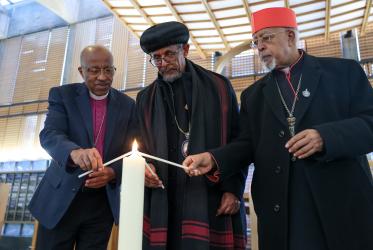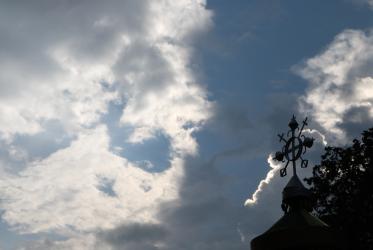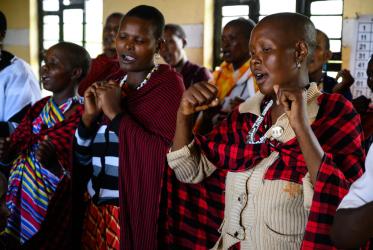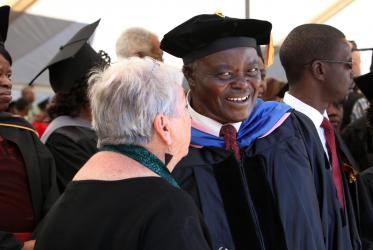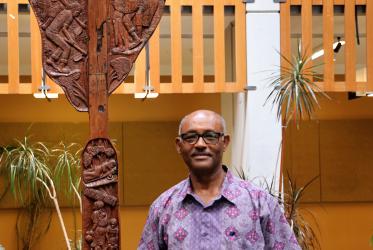Displaying 1 - 20 of 38
WCC expresses solidarity with Ethiopian Orthodox Tewahedo Church
03 February 2023
WCC offers prayer for the nation of Ethiopia
21 June 2021
WCC remembers life of Patrick Matsikenyiri, a joyful song leader
15 February 2021
Young Africans are eager to grapple with challenges
09 January 2020
Ethiopians celebrate Meskel festival
01 October 2019
Former WCC executive finds joy working for peace in Ethiopia
06 August 2019
Paving the way for ecumenical studies, learning English in Bossey
24 September 2018
Rev. Kenneth Mtata reflects on journey of transition in Zimbabwe
20 September 2018
#WCC70: Fellowship of women and men – with ups and downs
17 August 2018
